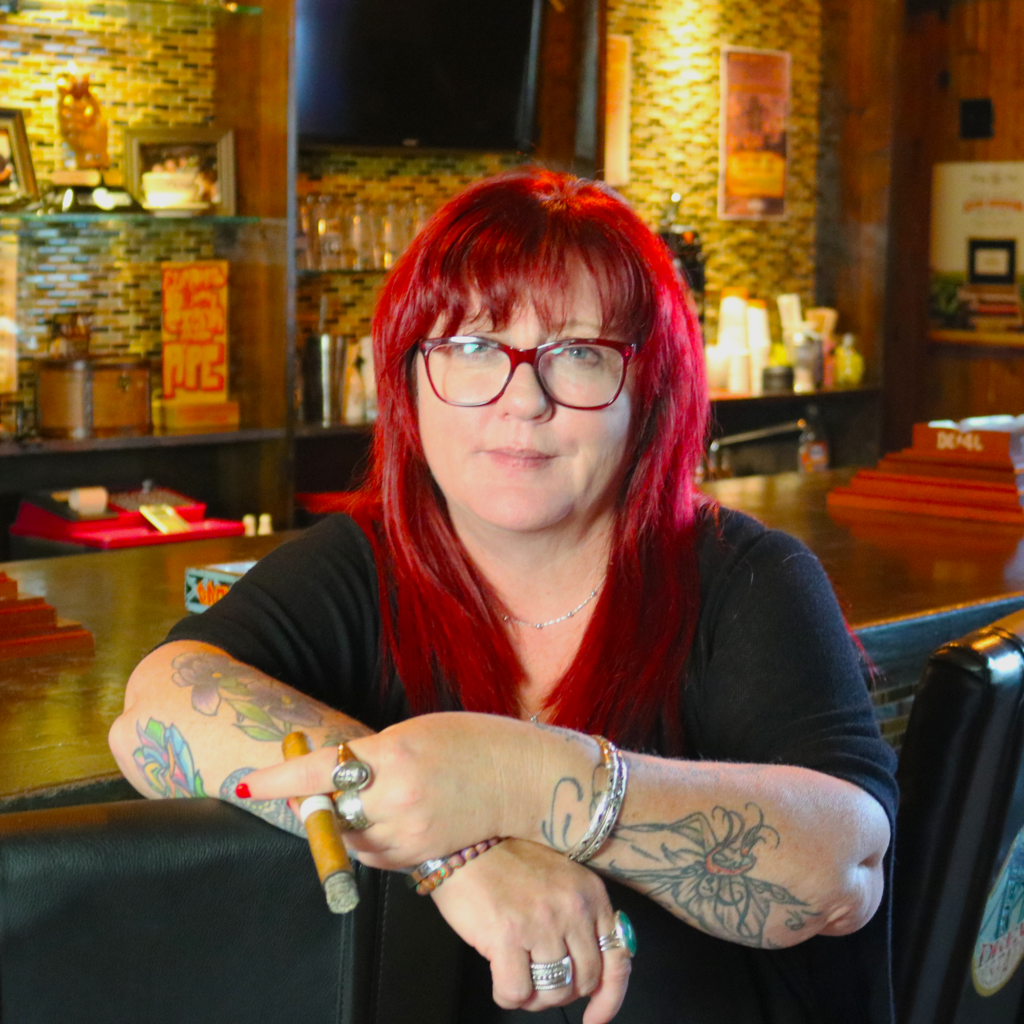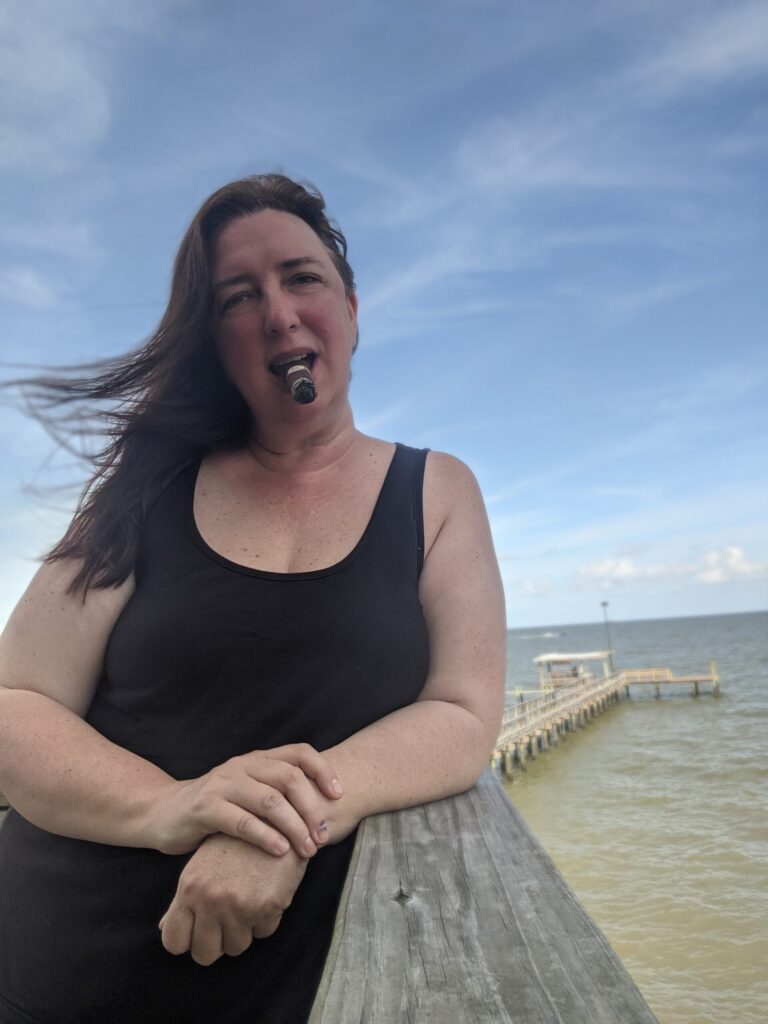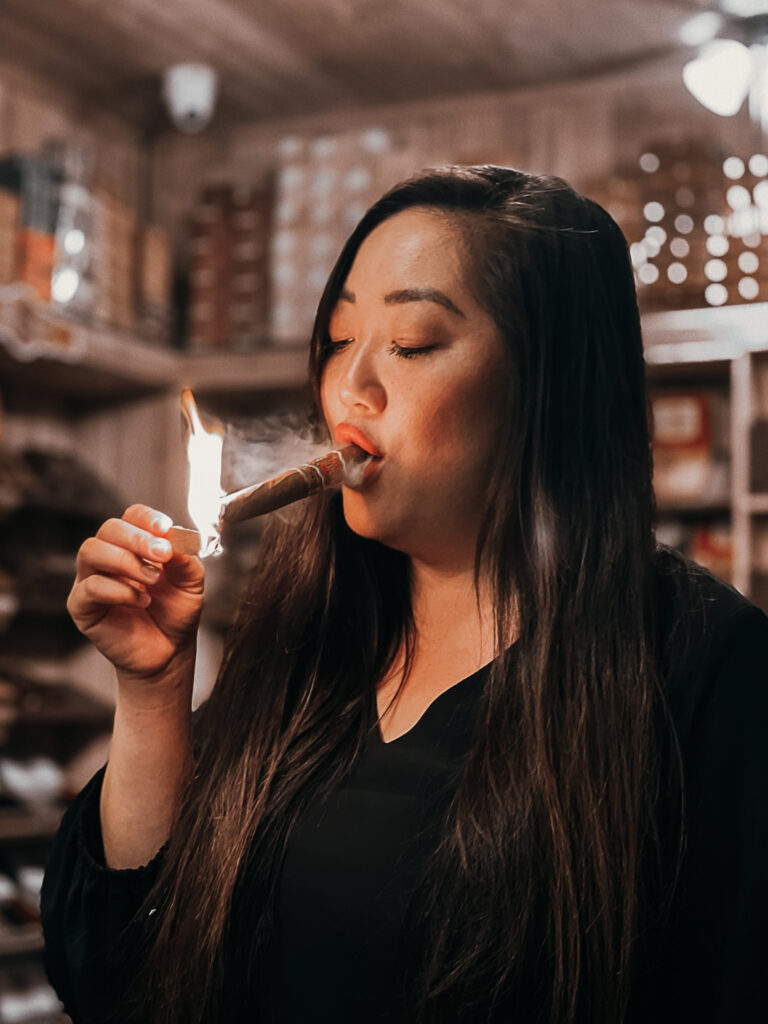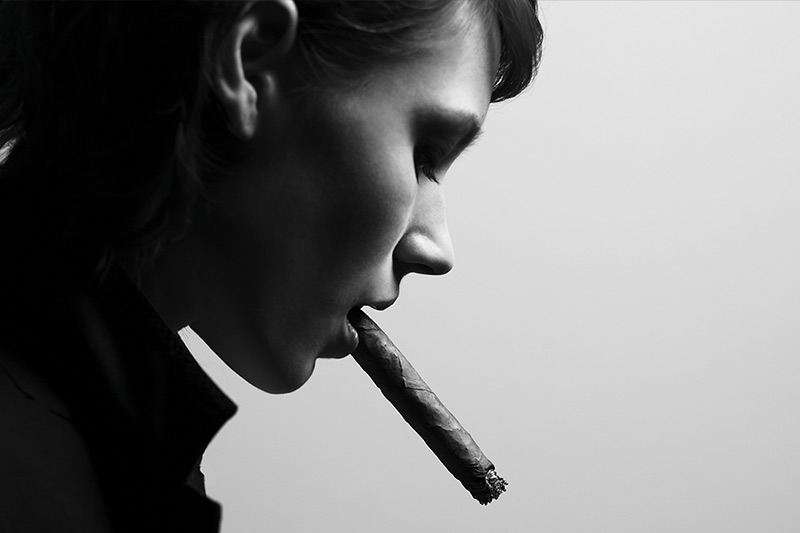It was an impromptu meeting on the PCA show floor—some knowing each other for years, others meeting for the first time. It started as light banter, bonding over the common passion of cigars, but soon the conversation took a more insightful tone.
“It all kind of happened organically,” says Kathleen Kelly, owner of Queensbury Cigar & Pipe and a PCA board member. “We were sitting down, just four or five of us, and we were talking about the industry and the challenges we face as women and the idea that you are always having to prove yourself.”
Misogyny, of course, is not limited to one workplace or industry. Equal pay, equal opportunity, simply equal respect, are still obstacles women face every day. Nearly 40 percent of the world’s economies still have laws preventing women from joining the workforce. And while the U.S. is certainly one of the more progressive countries for equality in the workplace, nearly half of women surveyed in the U.S. have faced overt gender discrimination at work. But the challenges women face are more than lower pay or overlooked promotions. As Kelly points out, many obstacles, particularly in the premium cigar industry, are about proving your competency.

“I ran a successful e-commerce that I just sold to Sutliff,” says Kelly. “I had a little niche of pipes and pipe tobacco and people would call up and say, ‘I need a pipe expert.’ I’d say, ‘OK, no problem, what’s your question?’ And I’d get back, ‘Well, are you a pipe expert?’ So you have to go through answering these questions, offering your resume, to prove that you can help somebody when if it was a guy, the customer would just ask him the question.
“And I always tell the story that years ago, probably about 15 years, I was at the show when it was RTDA, and one of the days I walked up and down each aisle to make sure I didn’t miss anyone, looking for a new product I might want. And at one booth, a guy said to me, ‘Send your husband back and I’ll show him our new product.’ That statement just blew me away. The assumption that I was just somebody’s wife and knew nothing about cigars.”
It is these more subtle forms of chauvinism that create an all-too-familiar frustration. When PCA Board member Jessica Hutson, owner of Just for Him with her husband, entered the industry, the husband-and-wife team were both heavily involved in politics, fighting a strict indoor smoking ban that garnered national news.

“This had both of us working full-time in the business that we just started and full-time in politics fighting the ban,” Hutson says. “I spent almost two years doing about 40 hours a week of interviews and debates. We ran multiple elections and petition drives before we got our smoking rights back. We, as a store, won two large awards from the industry, and both of them had only my husband’s name on them. His name absolutely should have been on them. But there should have been another name on there, too.”
Angela Yue, owner of Grand Cathedral Cigars in Tampa, says it’s often a no-win situation for women. They’re either constantly having to prove their knowledge of cigars or justifying why they are successful, and many times both at the same time.

“I think I face the most heat from other retailers,” she says. “It’s not a big issue, but it always bothered me on a personal level. Other retailers have said, ‘Oh, well the only reason why Angela has all these accounts is because she’s a female’ or ‘Maybe she’s getting preferential treatment.’
When in reality I have these accounts because I’m an aggressive retailer and I sell a lot of product. What they don’t realize is that our strength is merchandising, we market very well and we sell a lot of cigars.”
It is an underlying implication that sex appeal has more to do with a woman’s success that competency. Granted, sex has been, and will probably continue to be, used to sell cigars. Anne Dinkins, who has been in the industry for nearly two decades and is now inside sales manager at Sutliff, recalls her first industry show. “I’d never been to a trade show like that before,” she says. “I came from the banking industry, so I’d never seen anything like that. And walking around the show floor, there were a lot of scantily clad women back then. I was like, “Okay, I get it. It’s a man’s world. Sex sells.” And while she says things have improved dramatically since that first show, there are still examples in the industry of using sex to sell.
“It’s gotten a little bit away from this, but I’ve had events at my store where I was required to hire models,” shares Kelly. “And I find it very interesting because you have to hire somebody who’s wearing a piece of tissue paper. I get it, but it’s also insulting as a woman business owner that you are parading around somebody to cut your cigar that’s dressed in a short, short dress.”
All the women interviewed note the industry should not be painted with a broad brush. The healthy, thriving working relationships they’ve developed with both genders have made them successful—the number of positive experiences outweighing the negative. But it’s also important to recognize the cigar industry is not immune to discrimination and the more we recognize and call it out, the better off we all are. And, they say, those instances should not deter more women from entering the industry.
“Owners and manufacturers, for the most part, have been amazing,” says Hutson. “And I think it’s probably because there are so many strong women in the manufacturing side, and even if they aren’t actively involved in the manufacturing world, there’s strong women in the lives of the people who are in manufacturing.
“A big thank you goes to every other woman who was involved way back when because there were just a few women, but they paved the way and now we have larger numbers that are on boards. We have larger numbers that are not just running stores, but running stores and being active in the entire community. There’s women that are doing interviews, that are reviewing cigars, that are speaking as knowledgeable people in the industry. And I think that people, at this point, are a lot more used to that.”
Perseverance and adaptability are two of the traits most emphasized to help women thrive in the cigar world, understanding that while misogyny has no place in society, it does exist and has to be worked around. Yue, in particular, found that as a young, Asian woman entering the industry, she had to learn and adjust her business approach.
“I learned a lot from my first store. I made a lot of mistakes that now I don’t make,” she says. “One of the hardest things with customers is the average demographic of cigar smokers is an older male. And me being a young, Asian female telling these men what they can and cannot do at our cigar store, it was always taken the wrong way. So I think I had an issue with enforcing rules, especially with members, just because I was so young and female, a lot of men didn’t really want to listen to what I had to say. So that was a big struggle for me. But I learned from it. Now I just approach the situation differently and I try to rely on my staff more rather than doing everything myself.”
For Hutson and Kelly, who have been in the business longer, some of it, they say, is a matter of developing the confidence that they know what is best for their business and they know a lot more than most about cigars and the premium tobacco industry.
“Obviously, experience has a lot to do with it,” says Hutson. “If somebody says something that is incredibly misogynistic and assumes I don’t have the authority to do something, or however it happens, now that I’m comfortable enough in the business, it’s much easier to just say, ‘No, this is my decision. No, I am an active owner in this store,’ because they come right out and say, ‘You’re a woman. You don’t know what you’re doing.’
“And some of it is the simple presence of more women in the industry. It’s no longer putting up pictures of women in bikinis smoking a cigar. It’s guys talking about women like Liana Fuente, who know their stuff, who are intelligent.”
It’s also about finding a support system that can help more women succeed in the industry. Says Kelly: “One of the things we talked about in the circle that day was women supporting women—to get together and talk about the struggles we faced because we can help one another overcome those issues. It’s a great thing for women to get together, and that’s why I love that kind of organic setting that happens only at a PCA show. We can all help one another. And then you feel like you’re not alone in some of the struggles you face.”
Tips for Women in the Industry
Get involved. Kathleen Kelly, owner, Queensbury Cigar & Pipe: I always talk about PCA, and it is why I wanted to join the board. I wanted to give back and make a difference and get more involved in my industry. And PCA is obviously more than just a show. They do a lot of good work for the industry, but going to the show and networking is a big thing. For women in the industry, I would tell them network, get involved. Even getting involved in their local community. For me, I joined our local Chamber of Commerce and you meet a lot of people in your community. So building relationships is great because now when you’re going through struggles or need advice, you’ve built a network up around you.
Know Your Stuff. Jessica Hutson, owner, Just For Him: I think, the same as in any industry, for a woman, it helps to do your research before you go in. Whereas, in this industry, as a man, if you go in knowing nothing, people are going to help you out. It might be a little bit harder for a woman who comes in with no knowledge to be taken as seriously, so learn what you can on your own first so that, when you go in, your questions are intelligent questions. I think that makes a difference because, that way, you can establish from the beginning that you’re serious about this. One of the biggest hurdles that women are going to have to overcome is that you smoke for fun or appearance, that you’re smoking for the look of it. So the biggest piece of advice I can give is educate yourself first. And I hate to say it, but I think any woman in almost any business already knows that lesson.
Don’t fight every battle. Angela Yue, owner, Grand Cathedral Cigars: In the beginning, I felt responsible for changing people’s attitudes, which is why I would take everything so personally. If someone didn’t listen to me I would get so upset. But now I understand that for me to get my point across and for these men to respect me, it takes time. I can’t just come in guns a-blazing, especially with people I don’t know. And over time, the men and the members who come to our store, they have a lot more respect for me. Kelly: You’re not going to change everybody’s mind, and that’s OK.
Find a mentor. Kelly: Look to successful people and see what they do, somebody like Dave Garafalo from Two Guys Cigars. Dave’s a sharer. Dave wants to see people succeed. Those are the people you want to surround yourself with.
Professional approach. Anne Dinkins, internal sales manager, Sutliff Tobacco: People will take you more seriously when you dress appropriately, when you’re not out there flashing your body, because I think that when you do that it sends negative connotations that you don’t really know what you’re talking about. Don’t fall into that trap. I’ve seen women who have the ability, the knowledge and the know-how, demean themselves by thinking that was the only way to get the sale or the only way to be taken seriously would be to show it off. I think that’s just a huge, huge mistake. Because not only do you have to then overcome their thoughts of you as a woman, now you have to overcome them thinking of you as somebody who degrades yourself or demeans yourself for their pleasure.
Mentorship Program
PCA is working to establish a mentorship program for women in the industry that will offer guidance and support. If you are interested in being a mentor or finding a mentor, please contact Erin Holland at erin@premiumcigars.org.

